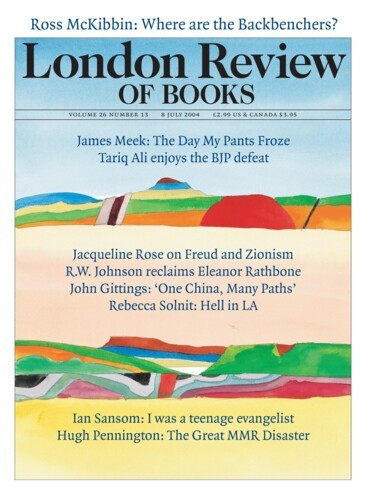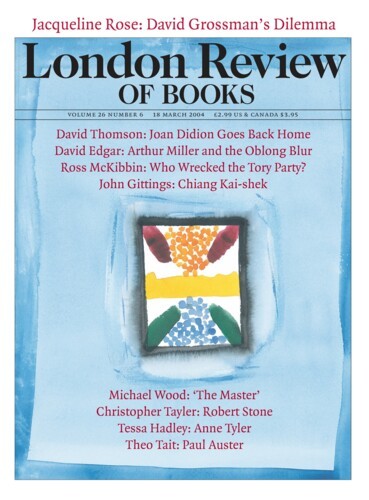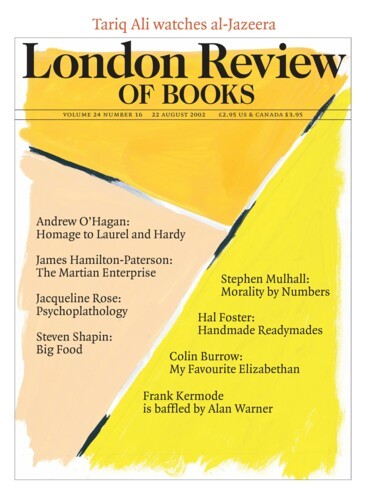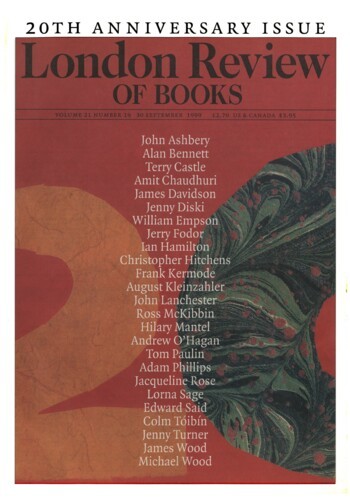In Our Present-Day White Christian Culture: Freud and Zionism
Jacqueline Rose, 8 July 2004
Ever since the fall of Baghdad, when looters went rampaging through the city, a centuries-old assumption about ‘the people’ has lurked, barely spoken, beneath the ghastly aftermath of the war. It is that the people, meaning ‘people en masse’, are incapable of restraining themselves. In the case of Iraq, two further assumptions are in play. First, people freed from the...




